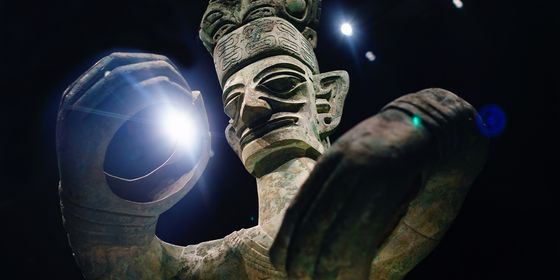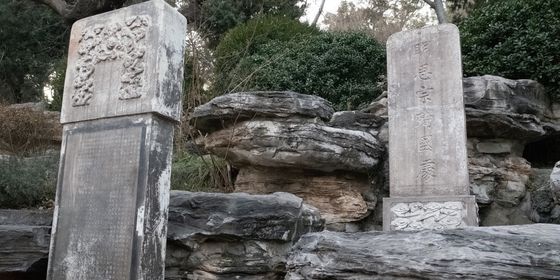Shattering sayings on explosion and destruction
Gunpowder, one of China’s “Four Great Inventions,” was probably an accident: Historian believe that alchemists were trying to make the pill of immortality when the ingredients in the cauldron (sulfur, nitrates, and honey, according to a ninth-century recipe) went boom.
Whether or not gunpowder has made a positive impact on the world in the 1,200 years since it was invented, however, is up to debate—and, judging by idioms that have to do with explosion, even ancient people were themselves far from sure. While a great force was sometimes admired, or at least feared and respected, as driver of progress and change, its destructive potential was considered troubling, as shown by many of the sayings below:
轰天震地 hōngtiān-zhèndì
Thundering the heavens and shaking the earth
This self-evident chengyu describes a cataclysmic force that seems to shake both the heavens and the ground, such as a physical explosion, a loud noise, or a powerful personality. It comes from a scene in the novel Outlaws of the Marsh, where the bandit Shi Qian sets fire to the “northern capital”: “One could only hear the sound of bombs in the city temple, thundering the heavens and shaking the earth (只听得城隍庙里火炮齐鸣,轰天震地 Zhǐ tīngde chénghuángmiào li huǒpào qímíng, hōngtiān-zhèndì).”
血肉横飞 xuèròu-héngfēi
Blood and flesh flying horizontally
What could make blood and flesh fly horizontally? A powerful force like an explosion, of course. This gruesome chengyu describes a scene of great carnage after a natural or human-made disaster.
狂轰滥炸 kuánghōng-lànzhà
Bombarding savagely and indiscriminately
Another self-explanatory chengyu, this is often used to describe modern warfare, especially battles with huge losses to civilian life. However, it can also figuratively describe the feeling of being overwhelmed by information.
There is no excuse for the indiscriminate bombing of refugee camps in war.
Zhànzhēng zhōng duì nànmínyíng de kuánghōng-lànzhà shì bùkě kuānshù de.
战争中对难民营的狂轰滥炸是不可宽恕的。
石破天惊 shípò-tiānjīng
Shattering the earth and shocking the heavens
Though it sounds similar to the idioms above, this chengyu is a positive one, used to describe an earth-shakingly original idea or occurrence. It originally appeared in a Tang dynasty (618 – 907) poem by Li He (李贺), which tells the musician Li Ping’s (李凭) wonderful skill at the konghou (箜篌), an ancient harp-like instrument. Supposedly, Li Ping’s music was so touching that it broke open the five-colored rock with which the goddess Nüwa (女娲) had repaired the sky, and made the heavens rain.
This essay analyzed the issue thoroughly, and arrived at an earth-shattering conclusion.
Běnwén duì cǐ shì jìnxíng le chōngfèn de fēnxi, bìng dédàole yí gè shípò-tiānjīng de jiélùn.
本文对此事进行了充分的分析,并得到了一个石破天惊的结论。
一触即发 yíchù-jífā
Triggered by a single touch
This chengyu refers to a tense situation that has reached a critical point, where any small trigger can set off a crisis.
Tensions between the two countries have reached a boiling point.
Liǎngguó zhījiān de jǐnzhāng zhuàngtài yǐ dádàole yíchù-jífā de chéngdù.
两国之间的紧张状态已达到一触即发的程度。
河出伏流 héchūfúliú
River bursts from an underground stream
This saying refers to a great force that has been quietly building up, and finally bursts with all its power. It was used by the revolutionary thinker Liang Qichao (梁启超) in an essay expressing his hope and optimism for the youths of “New China” after the fall of the Qing dynasty (1616 – 1911) in 1911: “The dawning sun shines bright on the road. The river bursts forth and fills the vast ocean (红日初升,其道大光,河出伏流,一泻汪洋。Hóngrì chūshēng, qí dào dàguāng, héchūfúliú, yīxiè-wāngyáng).”
Cover image from VCG












